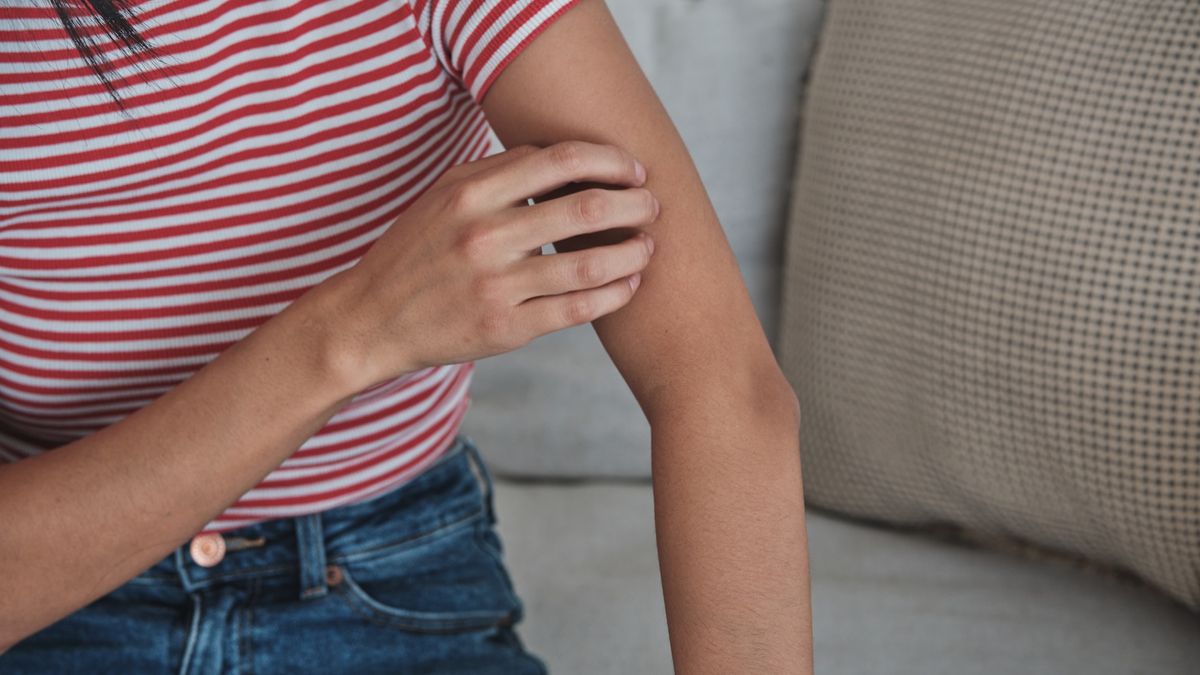It’s tough to resist scratching an itch — and there might be an evolutionary reason for that, a new study suggests.
People are typically advised not to scratch itchy skin — whether due to a bug bite or chronic condition — because too much abrasion can raise the risk of infection by injuring the skin and may worsen the itchiness. However, a study published Thursday (Jan. 30) in the journal Science found that some amount of scratching may be useful.
Turns out, scratching an itch increases inflammation and boosts the body’s immune response at an itchy injury site, thus helping to ward off infection, the researchers discovered. The findings may help explain why scratching has been preserved across multiple species.
“If scratching an itch is bad for us, why does it feel so good?” study co-author Dr. Daniel Kaplan, a dermatologist and immunologist at the University of Pittsburgh, said in a statement. “Scratching is often pleasurable, which suggests that, in order to have evolved, this behavior must provide some kind of benefit.”
Related: Inflammation is a ‘mismatch between our evolutionary history and modern environment,’ says immunologist Ruslan Medzhitov
To find out what that benefit might be, Kaplan and his colleagues bred mice that had certain itch-sensing neurons in their bodies deactivated. The researchers then dabbed an allergen on each mouse’s ear to trigger an itchy sensation. They compared the allergic reactions in the modified mice to reactions in normal mice, some of which wore collars that prevented them from scratching, similar to the “cone of shame” that a dog might wear after a trip to the vet.
The normal mice without cones scratched their ears in response to the allergen and developed some swelling. The researchers found that this inflammation resulted from pain-sensing neurons releasing a substance that activates “mast cells,” which act like alarms in the immune system. To trigger inflammation, these mast cells summon another type of immune cell called a neutrophil that helps corral the germs behind infections, among other roles.
Meanwhile, the mice with cones, along with the ones that couldn’t feel the itch, developed much less swelling in their ears. This suggested that scratching was responsible for most of this inflammatory response.
Mast cells summon the body’s defenses against infection, so scratching might protect against infection by activating these cells, the researchers proposed.
To test their hypothesis, the researchers exposed each mouse’s ears to an itch-inducing substance followed by Staphylococcus aureus, a bacterial species that commonly causes skin infections. After a day, normal mice without cones had 10 times fewer S. aureus bacteria on their skin, compared to the mice with cones and those without itch-sensing neurons. This suggested that scratching boosted the mice’s defenses against the bacteria.
The findings may offer some insight into why we itch in the first place.
“It’s highly evolutionarily conserved,” meaning it’s a behavior widely seen on the tree of life and displayed across numerous species, said Liwen Deng, an immunologist at Harvard Medical School who was not involved in the new research. “But it just seems so damaging, and we really had no understanding of what could be helpful about it. So it really is one of the first studies to show that it could be a beneficial response,” Deng told Live Science.
Despite these potential benefits, scratching does still have some negative effects, especially when it comes to chronic conditions. Scratching too much can worsen the inflammation to the point that it slows down the healing process. In short, you can have too much of a good thing.
“The finding that scratching improves defense against Staphylococcus aureus suggests that it could be beneficial in some contexts,” Kaplan said. “But the damage that scratching does to the skin probably outweighs this benefit when itching is chronic.”
This article is for informational purposes only and is not meant to offer medical advice.
